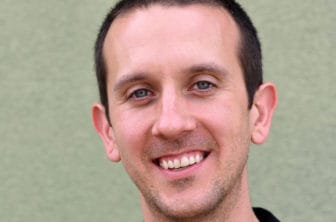COMMENTARY: Former U.S. President George W. Bush said in May, at the funeral for five police officers killed in Dallas, that Americans too often “judge other groups by their worst examples, while judging ourselves by our best intentions.”

Heath Haussamen
I’ve witnessed this. When former Gov. Bill Richardson, a Democrat, took massive campaign donations from people who got state contracts, many Republicans called it corruption. Today, President-elect Donald Trump’s conflicts make Richardson’s seem piddly, but many Republicans are silent. Some are defending Trump.
When current Gov. Susana Martinez, a Republican, and staffers used private email for public business, many Democrats called it corruption. But when Trump’s Democratic opponent, Hillary Clinton, did the same thing as secretary of state, many were silent – or actively defended Clinton.
The consequences for such illogical groupthink are far more serious than winning or losing elections. As Bush said, “this has strained our bonds of understanding and common purpose.” The public resurgence of white nationalism and its proximity to the White House is one sign that this nation’s greatest strength – our multiculturalism and commitment to building bridges for the good of all – is at risk.
Too many of us spend time primarily with people who are like us, consume only news that confirms our worldviews, and fail to acknowledge that others live in different circumstances.
In this divided time, I’m grieving what we’ve already lost in the United States. And in this holiday season, I’m looking for hope.
Bush had a message for our nation after those five officers died in Dallas, calling on us to remember our values. “We have never been held together by blood or background,” he said. “We are bound by things of the spirit, by shared commitments to common ideals.”
“At our best, we practice empathy, imagining ourselves in the lives and circumstances of others. This is the bridge across our nation’s deepest divisions,” Bush said. “And it is not merely a matter of tolerance, but of learning from the struggles and stories of our fellow citizens and finding our better selves in the process.”
Many people and institutions – including mine, journalism – share blame for moving us in the opposite direction. With our society’s political rhetoric, endless campaigning, dark money, negative ads, and scandal-obsessed reporting, we’ve chosen to ignore or reject others’ struggles.
We don’t have to be enemies. After police killed white rancher LaVoy Finicum during a standoff over public lands in Oregon this year, folks in Finicum’s ideological camp found common ground with the Black Lives Matter movement. They worked together to fight for transparency in response to state legislation that would conceal the names of officers involved in shootings.
Common interest. Common purpose.
At our best, Bush said in his speech, “we recognize that we are brothers and sisters, sharing the same brief moment on Earth and owing each other the loyalty of our shared humanity.”
“At our best, we know we have one country, one future, one destiny,” he said. “We do not want the unity of grief, nor do we want the unity of fear. We want the unity of hope, affection and high purpose.”
I believe in our capacity for empathy and our ability to find common ground. There are people acting with high purpose today, like Newt Gingrich and Van Jones. But too many of us are not.
If President Bush can choose unity, we all can. And we must.
Heath Haussamen is NMPolitics.net’s editor and publisher.
